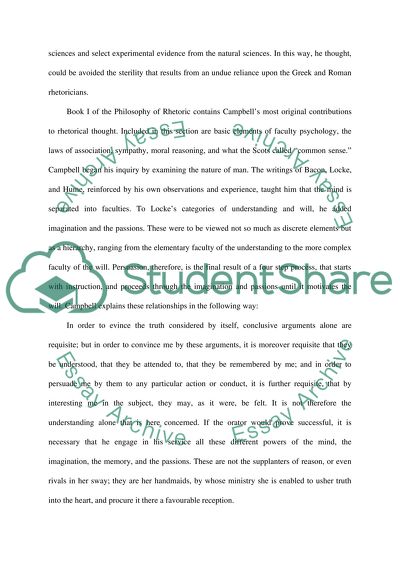George Campbell's rhetorical theory Essay Example | Topics and Well Written Essays - 500 words. Retrieved from https://studentshare.org/philosophy/1531873-george-campbells-rhetorical-theory
George Campbell'S Rhetorical Theory Essay Example | Topics and Well Written Essays - 500 Words. https://studentshare.org/philosophy/1531873-george-campbells-rhetorical-theory.


